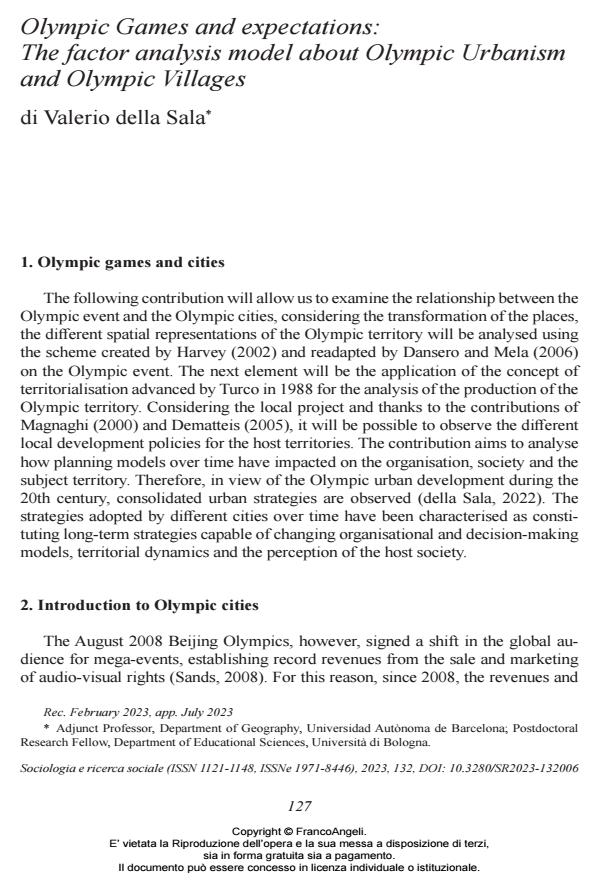Olympic Games and expectations: The factor analysis model about Olympic Urbanism and Olympic Villages
Titolo Rivista SOCIOLOGIA E RICERCA SOCIALE
Autori/Curatori Valerio della Sala
Anno di pubblicazione 2024 Fascicolo 2023/132
Lingua Inglese Numero pagine 21 P. 127-147 Dimensione file 235 KB
DOI 10.3280/SR2023-132006
Il DOI è il codice a barre della proprietà intellettuale: per saperne di più
clicca qui
Qui sotto puoi vedere in anteprima la prima pagina di questo articolo.
Se questo articolo ti interessa, lo puoi acquistare (e scaricare in formato pdf) seguendo le facili indicazioni per acquistare il download credit. Acquista Download Credits per scaricare questo Articolo in formato PDF

FrancoAngeli è membro della Publishers International Linking Association, Inc (PILA), associazione indipendente e non profit per facilitare (attraverso i servizi tecnologici implementati da CrossRef.org) l’accesso degli studiosi ai contenuti digitali nelle pubblicazioni professionali e scientifiche.
Editions of the Olympic Games have given rise to an important urban transformation that has opened a new critical perspective on the new urban dimension of the Games, especially in the construction of the three main physical elements: the athletics stadium, swimming facilities and, above all, the «Olympic Village». The study analyses the Winter and Summer Olympic Games in a general way, with particular attention to the relationship between the Olympic spatial dimension and the urban fabric. The relationship of interdependence between the city and the Olympic Games has evolved through new models of development of the Olympic event that have marked the importance of the transformation processes of the city. The lack of previous studies allows us to affirm the importance of the study for the academic debate on the future of the Olympic Village. The study used quantitative factor analysis to investigate the different variables and responses of the Olympic specialists who participated in the sample. The study will observe the perceptions and expectations of respondents through statistical analysis, considering the three elements identified: social, territory and organization.
- Cases on Effective Destination Management Valerio della Sala, pp.185 (ISBN:9798369315484)
Valerio della Sala, Olympic Games and expectations: The factor analysis model about Olympic Urbanism and Olympic Villages in "SOCIOLOGIA E RICERCA SOCIALE " 132/2023, pp 127-147, DOI: 10.3280/SR2023-132006